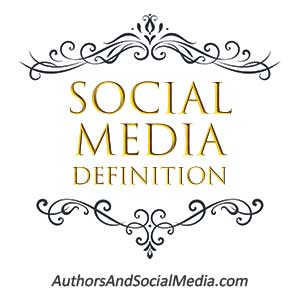Definition of Social Media by Authors: Understanding Its Role in Modern Writing
 Social media has revolutionized how authors connect with their audiences, market their books, and establish their personal brands. For many writers, understanding the definition of social media by authors involves seeing these platforms as tools for storytelling, networking, and promoting their books.
Social media has revolutionized how authors connect with their audiences, market their books, and establish their personal brands. For many writers, understanding the definition of social media by authors involves seeing these platforms as tools for storytelling, networking, and promoting their books.
This article about social media for authors explores how authors define social media in the context of their profession. Written by a former literary agent, it answers common and not-so-common questions about authors and social media, such as, “Which Social Media Do Authors Prefer?“
What Is Social Media Defined by Authors?
From an author’s perspective, social media refers to digital platforms that enable direct interaction with readers, industry professionals, and fellow writers. It is not just a means of sharing updates but a dynamic space for building relationships, expanding reach, and fostering engagement.
What Should an Author’s Primary Goal Be On Social Media?
The primary goal should always be authentic engagement. Focus on connecting with your audience, showcasing your personality, and providing value—whether that’s through writing tips, book recommendations, or snippets of your work. Sales are a byproduct of genuine interaction, not the sole focus.
Key Elements in the Authorial Definition of Social Media
- Connection: A way to engage directly with readers and fans, creating a community around their work.
- Promotion: A platform for marketing books, sharing milestones, and announcing new releases.
- Creativity: An extension of storytelling, where authors can share snippets, behind-the-scenes content, or even micro-narratives.
- Learning: A resource for staying updated on industry trends, networking with peers, and discovering publishing opportunities.
Fact: Social media platforms boast over 4.9 billion active users worldwide, making them a powerful channel for authors to reach diverse audiences (Statista).
The Role of Social Media for Authors
-
Branding and Identity
Social media allows authors to create a personal brand that reflects their writing style, themes, and values.
- For instance, an author of fantasy novels may focus on mystical imagery, while a nonfiction writer might share insightful quotes and data.
-
Marketing and Promotion
Authors use social media to announce book launches, host virtual events, and run targeted advertising campaigns.
- Stat: 72% of authors reported increased book sales through social media marketing (Statista).
-
Reader Engagement
Platforms like Instagram and Twitter enable real-time interaction with readers through comments, polls, and direct messages. This fosters loyalty and builds a dedicated fanbase.
- Example: Using #AskTheAuthor sessions to answer fan questions about a book’s themes or characters.
-
Community Building
Social media groups and hashtags like #WritingCommunity and #AmWriting create spaces where authors and readers connect, share insights, and support each other.
-
Research and Inspiration
Authors often turn to social media for story ideas, trending topics, or insights into their audience’s preferences.
Conclusion – Definition of Social Media by Authors
The definition of social media by authors goes beyond simply sharing updates. It’s a dynamic tool for storytelling, branding, and building meaningful connections with readers and industry peers. Whether you’re a debut writer or an established author, leveraging social media effectively can amplify your voice, enhance your reach, and ultimately help you succeed in the literary world. Now that you’ve read “Definition of Social Media by Authors,” click here for the next article in this guide to social media for authors, “Do Authors Need Social Media?“

 This guide about
This guide about 